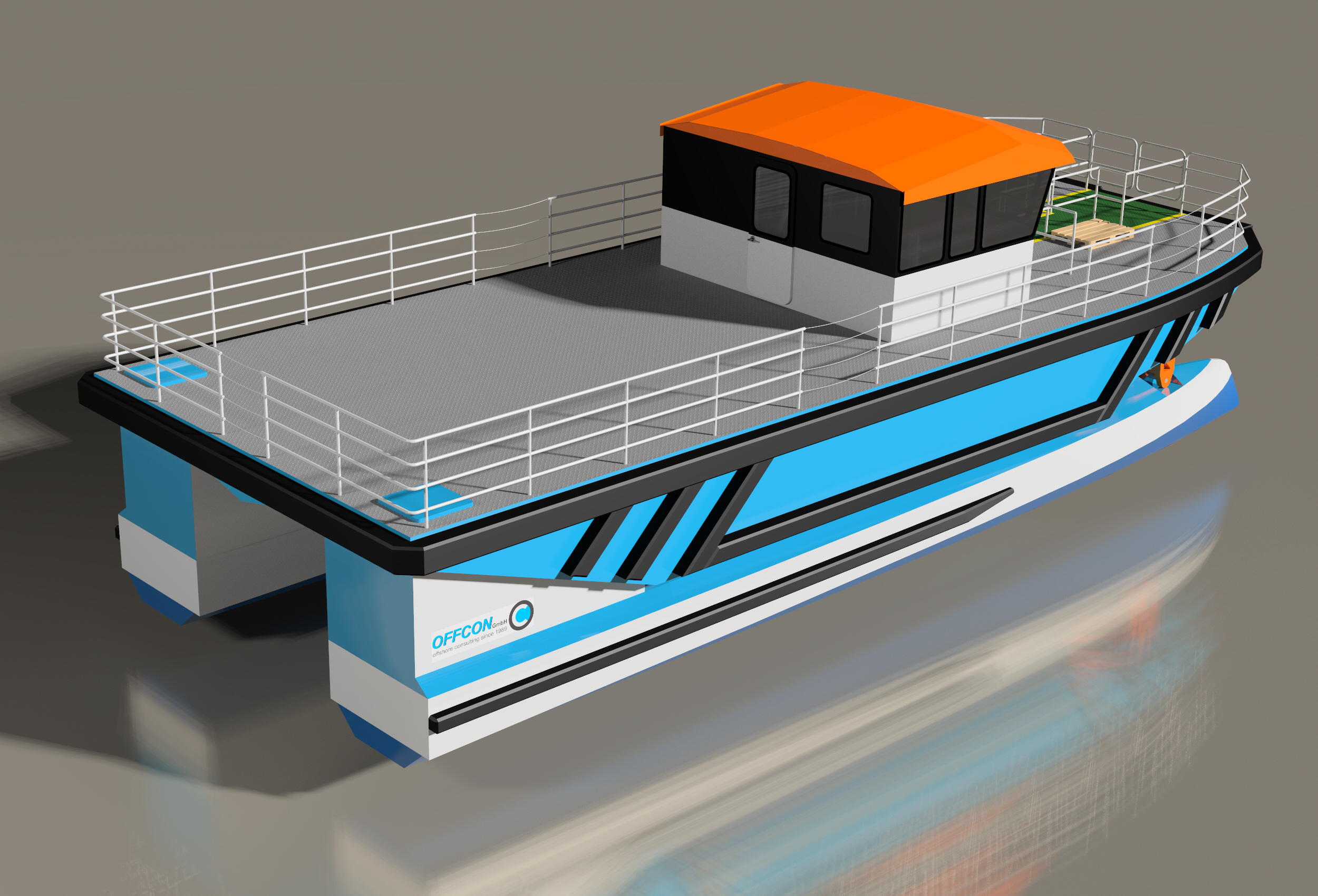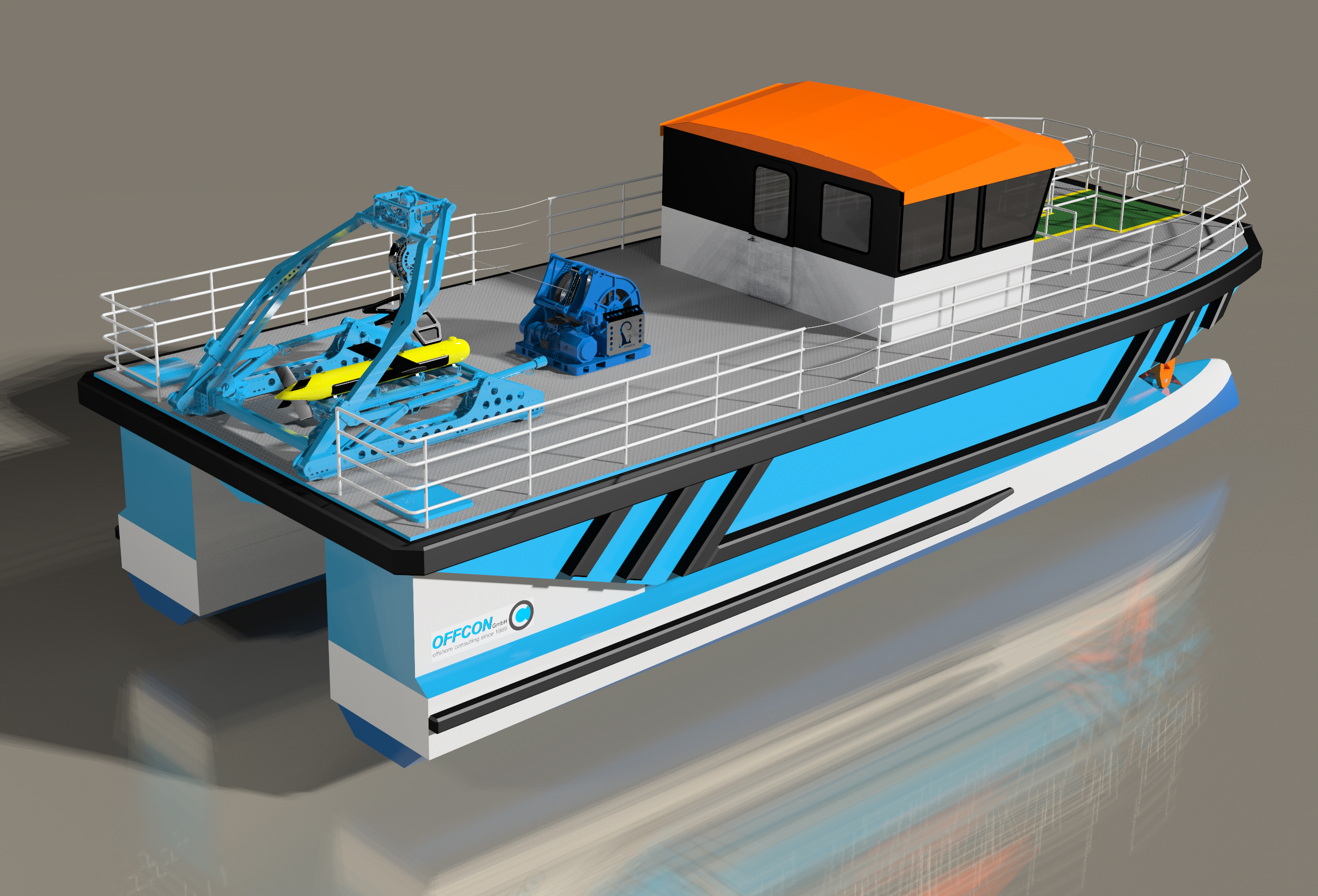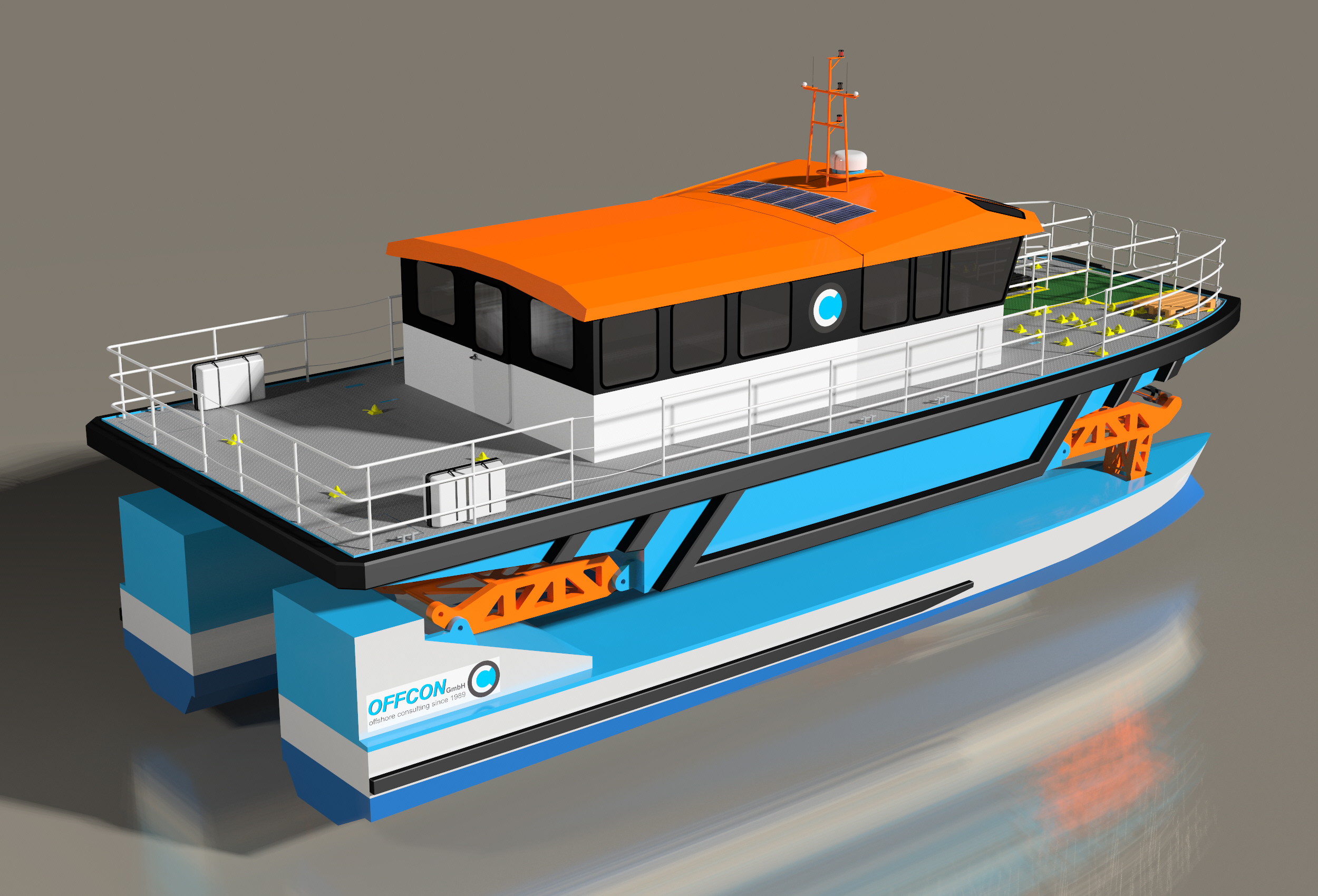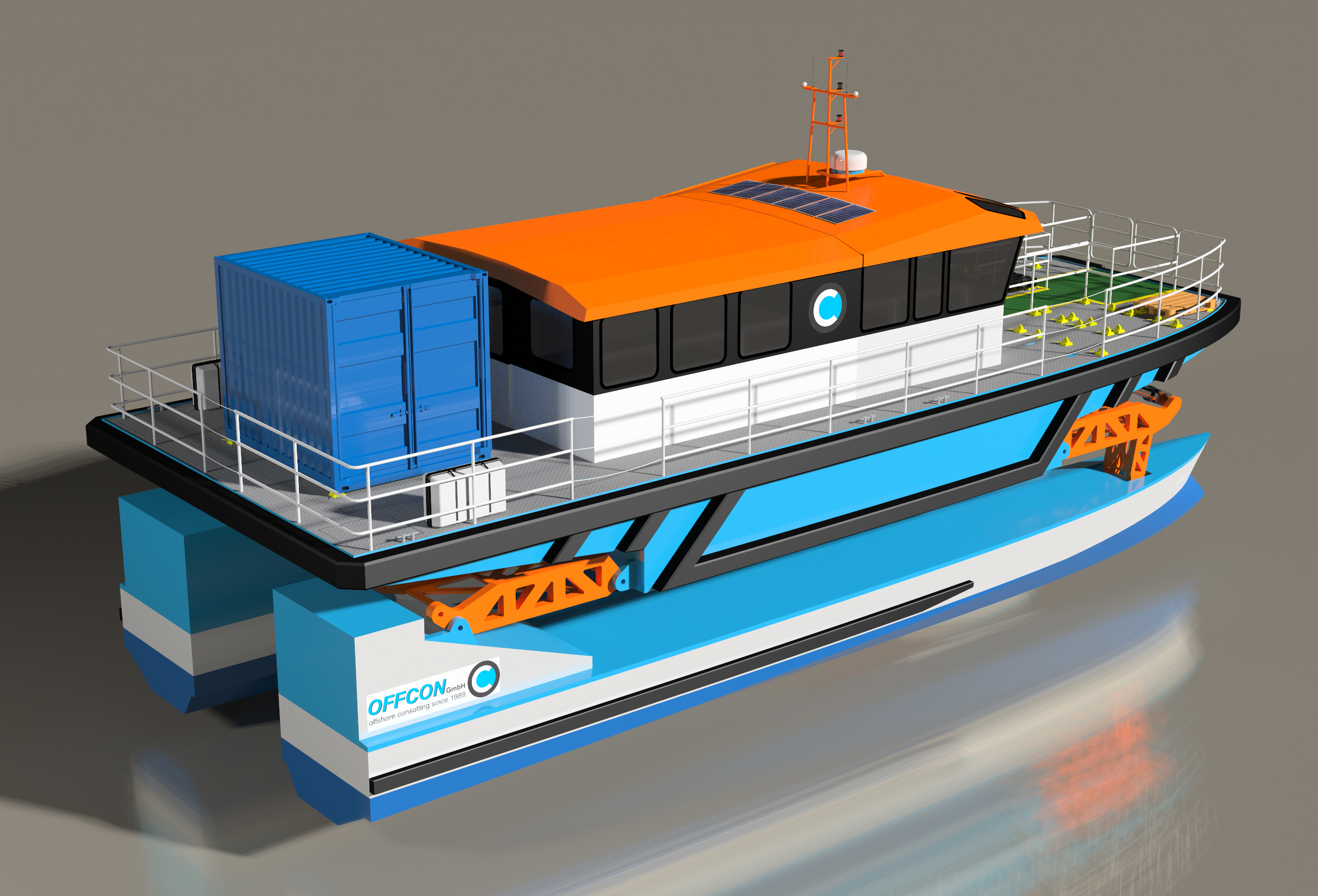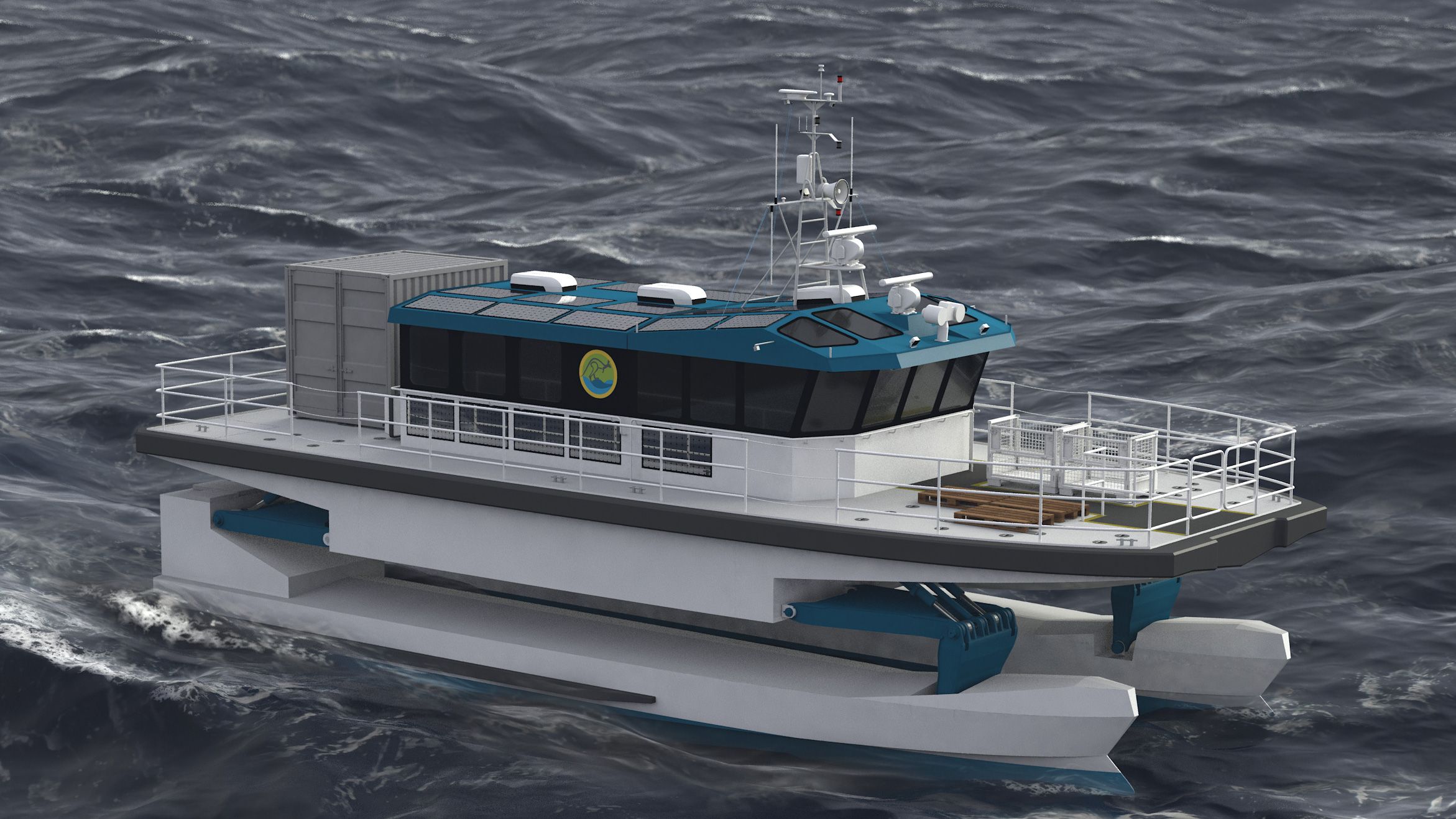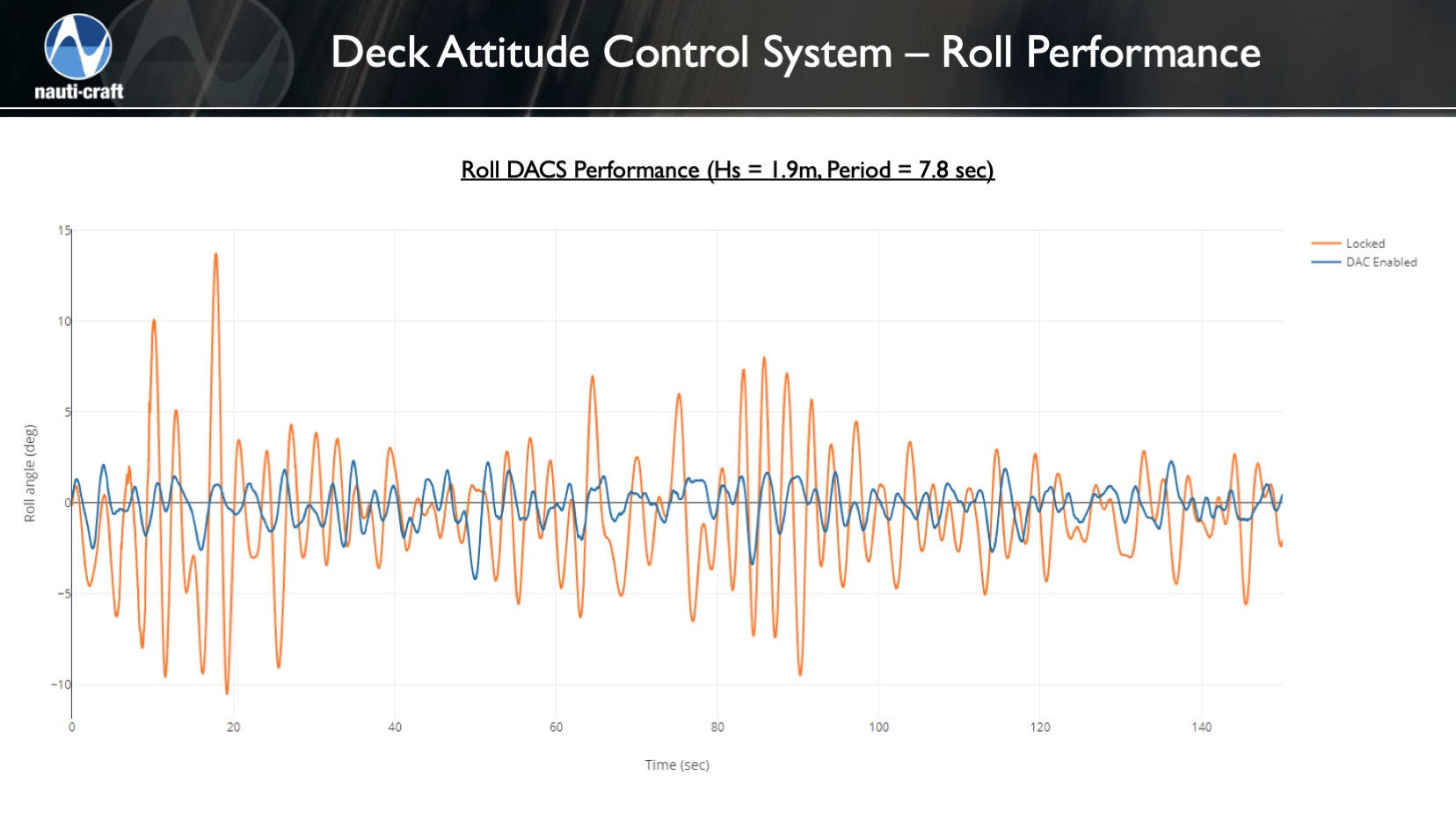
Less risk
The suspension system reduces the risk during personnel transfer offshore or in pilot transfers significantly. The delivery platform is kept stable whilst the hulls react to the waves. Additionally to the passive wave compensation by the suspension system, the deck can be kep at level using the DACS (Deck Attitude Controle System). For transfers to wind turbines via a boat landing the additional bow height control mode adds comfort and safety.
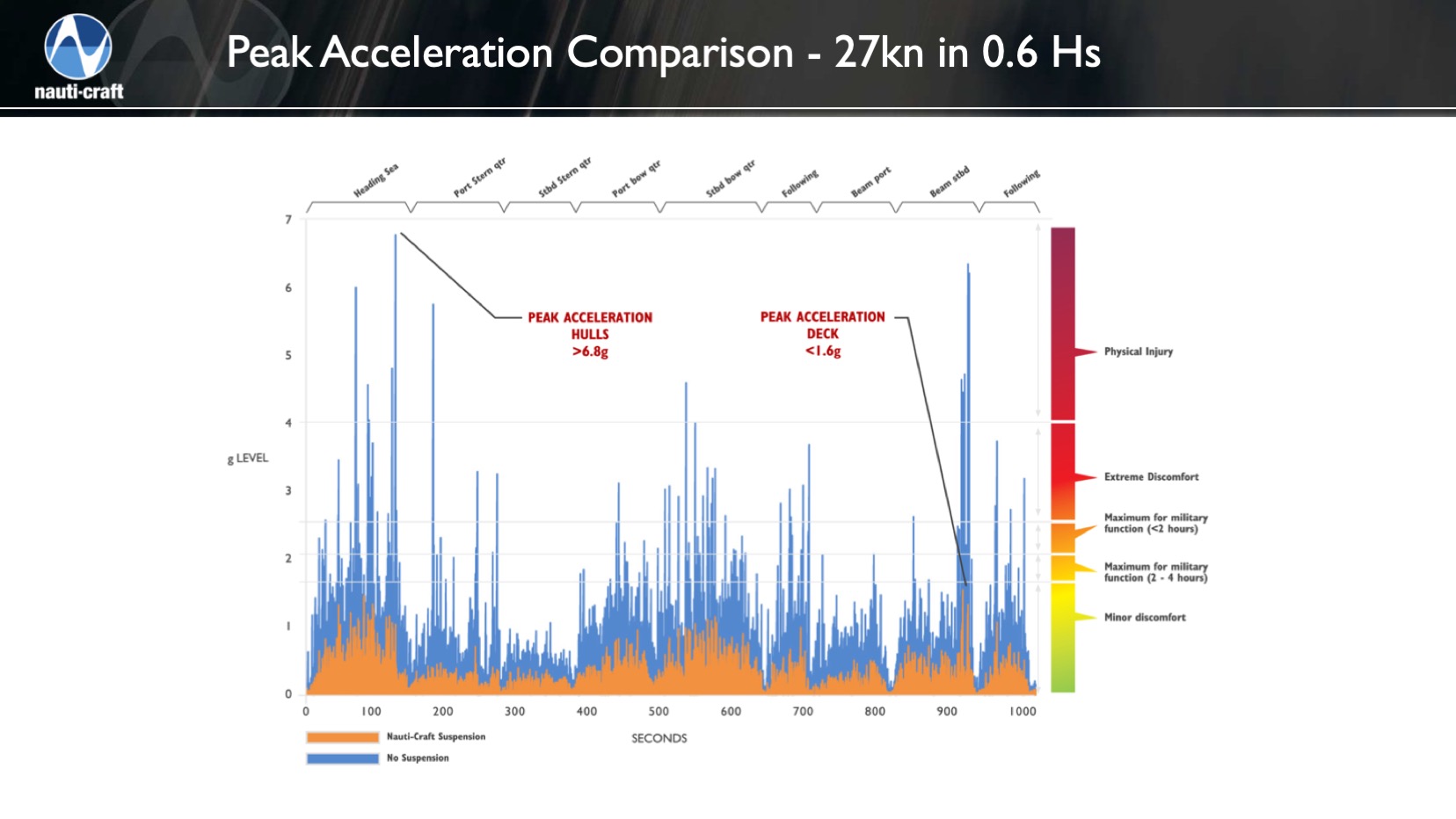
More comfort
During transit g-forces introduced to the passengers is reduced by approximately 75%. This reduces risk of seasickness and injuries during transit.
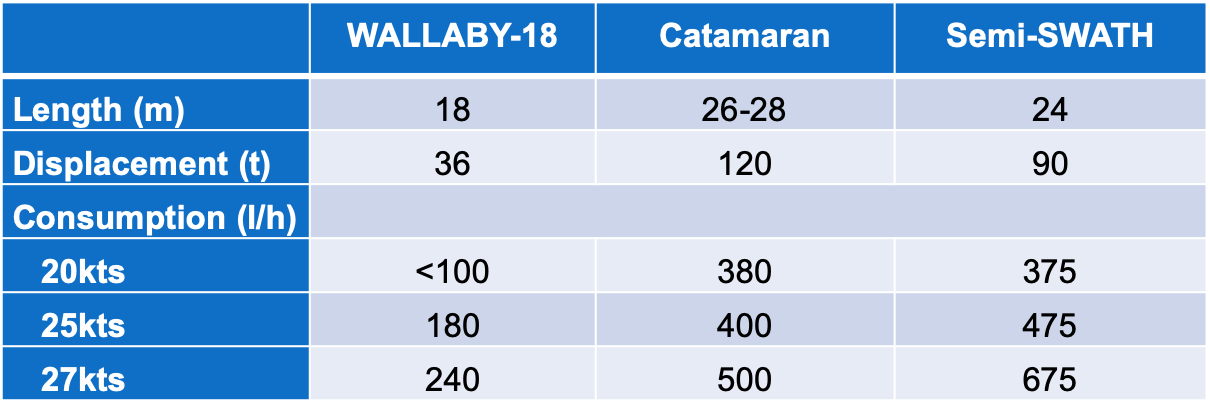
Less emissions
The suspension system allows to use smaller boats with the same wave performance. This results in significant reduction of consumed ressources during building. The lesser weight and size of the boats results in a significant reduction of fuel consumption and greenhouse gas emmissions. Example comparison between a Wallaby-18 and a catamaran and a semi SWATH with a similar wave performance in the picture.
The next generation of Wallaby Boats will have hybrid propulsion and on Owners' request any type of alternative fuel system. Additionally all next generation WB will be supplied with the energy recovery system (see below). This returns more than twice of the energy used to dampen the motion of the vessel.
In combination these improvements contribute to a significant reduction of the environmental footprint of the vessel - "from well to wheel" and further to recycling.

Energy Recovery from Waves
Reducing the environmental footprint further!
When sailing with speed through waves energy is consumed. Wave energy is transferred into kinetic energy, motion of the vessel. We have found a way to recover part of this energy through our suspension system and make it available for the vessels energy system. This energy will be used to run the vessel's systems and potentially add to the propulsion.
The recovered energy of the WB-18 can be has high as 60kW. This is more than the generators can produce. In combination with the environmentally friendly LFP batteries this solution makes the operation of any generator obsolete, even taking power from the main engines can be switched off by the energy management of the automation system.
To make the benefit more understandable: a normal diesel engine consumes ca. 200g/kW. So this method can save up to 15 liters of diesel (EN590) per hour. That equals ca. 39,75 kg CO2 per hour and ca. 20 tons of CO2 per year, depending on weather, in addition to the CO2 economy of the vessel, just by using the wave energy.
Next generation Wallaby Boats will use this technology even more efficiently, helping to reduce the carbon footprint.
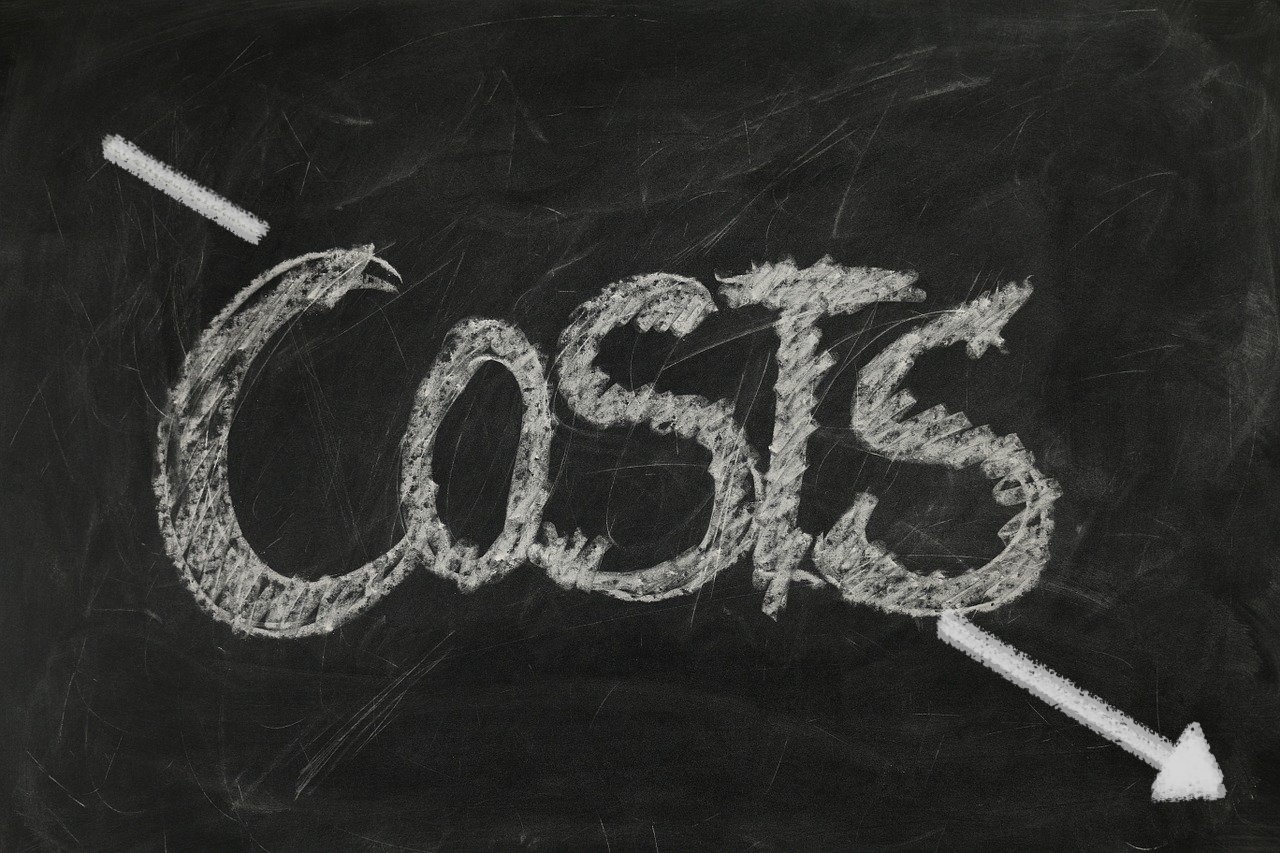
Less OPEX and less CAPEX
Finally the above results in ca. >4.000 liter less consumption per day during a standard 24/7 operation and savings of ca. 3.900 tons of greenhouse gases per year. As a much smaller boat can achieve the same wave performance as a larger boat, CAPEX can be split in less than half if payload is not critical.
Flexibility through modularity
The Wallaby Boats are all following a general modular approach. This provides highest flexibility for clients to equip the boats as required for the job. Even changes of vessel tasks are possible in very little time. Modules are installed with quick releases. Most items have a twist lock system.
First and only boat with suspension in this range
The Wallaby Boats are the first commercial boats applying the Nauti-Craft suspension system. The system is patent protected and Wallaby Boats has the exclusive rights to build the WB-10 through WB-24. Additionally to the Nauti-Craft patent, the boats incorporate several other patens. E.g. for cables, energy recovery system and landing method on a WTG.

